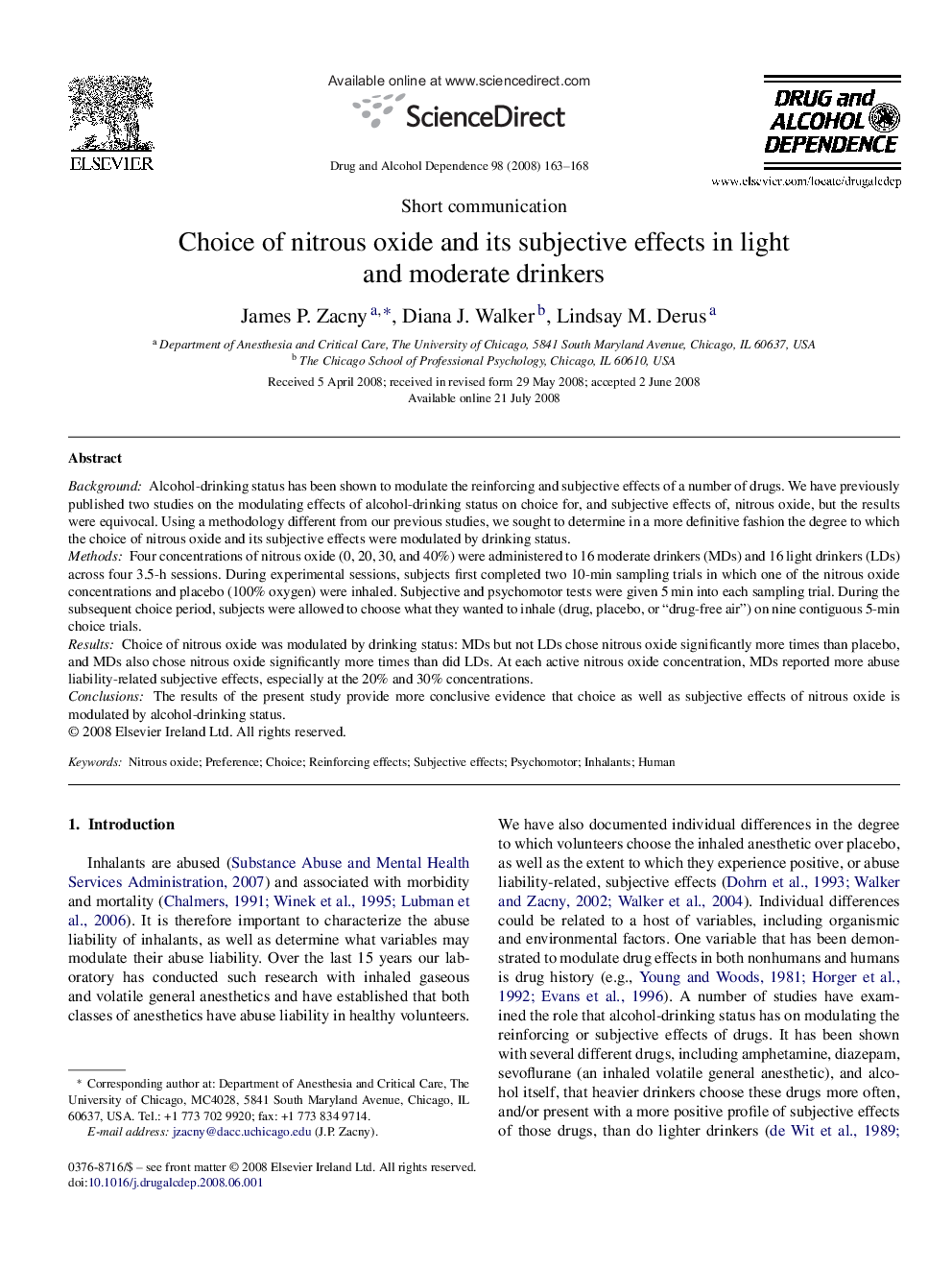| Article ID | Journal | Published Year | Pages | File Type |
|---|---|---|---|---|
| 1071036 | Drug and Alcohol Dependence | 2008 | 6 Pages |
BackgroundAlcohol-drinking status has been shown to modulate the reinforcing and subjective effects of a number of drugs. We have previously published two studies on the modulating effects of alcohol-drinking status on choice for, and subjective effects of, nitrous oxide, but the results were equivocal. Using a methodology different from our previous studies, we sought to determine in a more definitive fashion the degree to which the choice of nitrous oxide and its subjective effects were modulated by drinking status.MethodsFour concentrations of nitrous oxide (0, 20, 30, and 40%) were administered to 16 moderate drinkers (MDs) and 16 light drinkers (LDs) across four 3.5-h sessions. During experimental sessions, subjects first completed two 10-min sampling trials in which one of the nitrous oxide concentrations and placebo (100% oxygen) were inhaled. Subjective and psychomotor tests were given 5 min into each sampling trial. During the subsequent choice period, subjects were allowed to choose what they wanted to inhale (drug, placebo, or “drug-free air”) on nine contiguous 5-min choice trials.ResultsChoice of nitrous oxide was modulated by drinking status: MDs but not LDs chose nitrous oxide significantly more times than placebo, and MDs also chose nitrous oxide significantly more times than did LDs. At each active nitrous oxide concentration, MDs reported more abuse liability-related subjective effects, especially at the 20% and 30% concentrations.ConclusionsThe results of the present study provide more conclusive evidence that choice as well as subjective effects of nitrous oxide is modulated by alcohol-drinking status.
